When Drafting Online Bio, Beware of Client Confidentiality and Advertising Rules
A 2018 opinion from the ABA Standing Committee on Ethics and Professional Responsibility noted that “[l]awyers who blog or engage in other public commentary may not reveal information relating to a representation, including information contained in a public record, unless authorized by a provision of the Model Rules.”
May 13, 2019 at 12:03 PM
7 minute read
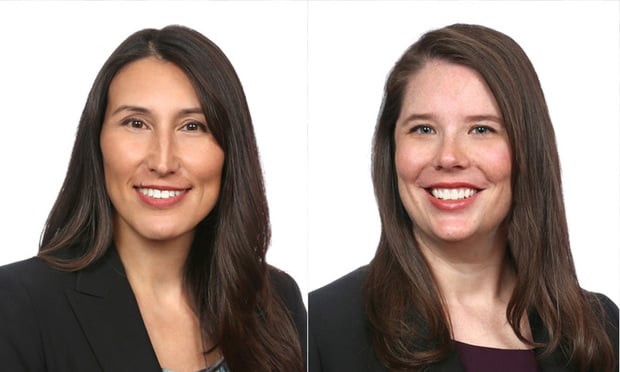 Shari Klevens (left) and Alanna Clair, Dentons. (Courtesy photo)
Shari Klevens (left) and Alanna Clair, Dentons. (Courtesy photo)
Nearly every practicing attorney has some sort of online presence, whether through a social media professional networking site like LinkedIn or through the attorney's law firm. Indeed, most law firms publish bios for each of their attorneys, noting their education, areas of practice and prior experience. Attorneys and clients alike use web bios to identify potential attorneys and to learn more about members of the bar.
Although web bios are commonplace, there are risks to an attorney's management of their online bio.
Be Aware of Confidentiality
Attorneys often use their online bios as a way to highlight their successes. However, attorneys need to balance that interest with their obligation of confidentiality under Rule 1.6 of the ABA Model Rules of Professional Conduct. Rule 1.6(a) provides: “A lawyer shall not reveal information relating to the representation of a client unless the client gives informed consent, the disclosure is impliedly authorized in order to carry out the representation or the disclosure is permitted by paragraph (b).” Part (b) then identifies those situations in which an attorney may reveal confidential information, including to prevent “reasonably certain death or substantial bodily harm,” to prevent a client from committing a fraud that would substantially injure the financial interests of another, to defend against allegations of malpractice, among other situations.
While most attorneys know not to include privileged information in a public publication, such as an online bio, many attorneys are additionally scrubbing their bios of any confidential information unless the client has specifically consented, particularly in light of a 2018 opinion from the ABA Standing Committee on Ethics and Professional Responsibility. In Formal Opinion 480, the ABA noted that “[l]awyers who blog or engage in other public commentary may not reveal information relating to a representation, including information contained in a public record, unless authorized by a provision of the Model Rules.”
Some attorneys may assume that they are free to write about client representations where the representations are a matter of public record. However, relying on Formal Opinion 480, more attorneys and law firms are not including case details or client names on their bios without express client consent. Indeed, may critics have opined that Formal Opinion 480 is not revolutionary but simply confirms the language of Rule 1.6.
Rule 1.9(c)(2) of the Model Rules additionally addresses confidential information relating to prior representations. Similar to Rule 1.6, Rule 1.9(c)(2) states that a lawyer who has formerly represented a client in a matter shall not thereafter “reveal information relating to the representation except as these Rules would permit or require with respect to a client.”
Many attorneys handle this in one of two ways—by obtaining client consent to disclose client relationships or matters (even if the representation is disclosed through public filings or other materials) or by describing relationships and matters in a way that does not reveal the confidential information.
Rules on Advertising May Govern
Attorney web bios are likely subject to the ethical rules regarding advertising and what an attorney may or may not say to a potential client.
Rule 7.1 of the Model Rules of Professional Conduct prohibits an attorney from making “a false or misleading communication about the lawyer or the lawyer's services.” The rule defines a communication as “false or misleading if it contains a material misrepresentation of fact or law, or omits a fact necessary to make the statement considered as a whole not materially misleading.” Although attorneys are permitted to describe their past successes (subject to the limitations on confidentiality described above), according to comment [3] to Model Rule 7.1, attorneys should take care to avoid leading “a reasonable person to form an unjustified expectation that the same results could be obtained for other clients in similar matters without reference to the specific factual and legal circumstances of each client's case.” In such a situation, a “truthful” statement about a past representation could still be viewed as “misleading” to potential clients.
Thus, obviously, most attorneys will avoid including anything in their bios that is misleading. If their bios focus on developing clients who may have matters similar to those previously worked on by the attorneys, the attorneys may consider using a disclaimer or other clarification to note that the outcome of any single representation will depend on the facts and circumstances. Many will also strive not to include bombastic or bragging statements in their bio that could run afoul of the rules on advertising (and, from a marketing perspective, may make the attorney less likely to be hired).
Bios as a Marketing Tool
Online bios are useful tools for lawyers in private practice to raise awareness of their services and attract clients. Thus, it is critical that attorneys ensure that their bios accurately reflect the type of work they do. From a marketing perspective, attorneys may try to find ways to stand out, to summarize their relevant experience, and to highlight their skills.
There are a few parameters of which attorneys can be aware. First, although attorneys may be able to describe the types of cases they handle or the types of clients they serve, most attorneys will avoid stating that they have a “specialty” in a certain area. This is because many bar rules restrict an attorney from calling themselves an expert in a type of law absent any particularized certification. For example, Rule 7.2(c) of the Model Rules provides that a lawyer shall not state or imply that they are certified as a specialist in a particular field of law unless the lawyer has been certified as such by an appropriate organization. Thus, an implication in a bio that suggests that an attorney is specially certified for a particular area of law may create ethical complications for the attorney.
Second, many attorneys strive to update their bios on a regular basis, to reflect recent developments, speaking engagements, and other opportunities. Indeed, an out of date bio is unlikely to present an attorney's skills in the best light. Many attorneys will ask another colleague—or, depending on the size of the firm, even a member of the firm's marketing department—to review the bio for typos, errors, and other issues that might limit the attorney's ability to present themselves.
Shari L. Klevens is a partner at Dentons US in Atlanta and Washington, D.C., and serves on the firm's U.S. board of directors. She represents and advises lawyers and insurers on complex claims and is co-chair of Dentons' global insurance sector team.
Alanna Clair, also a partner at Dentons US in Washington, focuses on professional liability and insurance defense. Klevens and Clair are co-authors of “The Lawyer's Handbook: Ethics Compliance and Claim Avoidance” and the upcoming 2020 edition of “Georgia Legal Malpractice Law.”
This content has been archived. It is available through our partners, LexisNexis® and Bloomberg Law.
To view this content, please continue to their sites.
Not a Lexis Subscriber?
Subscribe Now
Not a Bloomberg Law Subscriber?
Subscribe Now
NOT FOR REPRINT
© 2025 ALM Global, LLC, All Rights Reserved. Request academic re-use from www.copyright.com. All other uses, submit a request to [email protected]. For more information visit Asset & Logo Licensing.
You Might Like
View All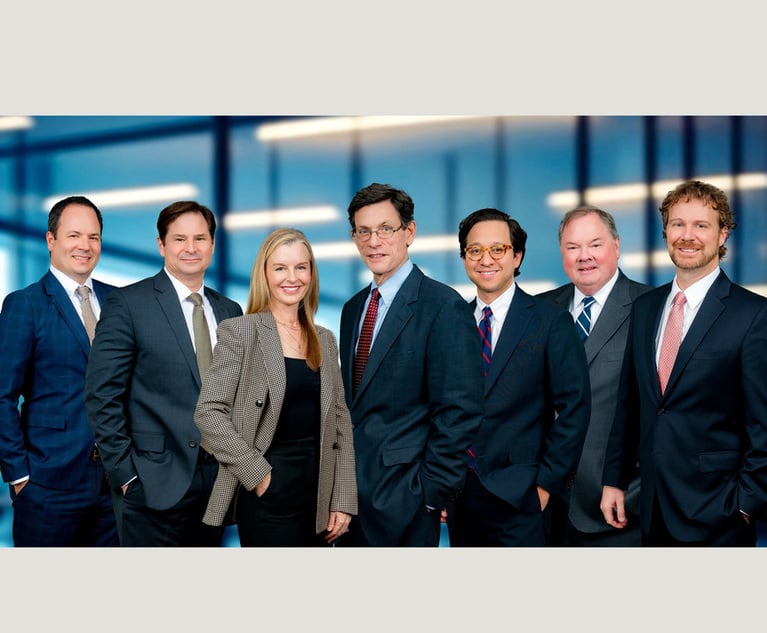
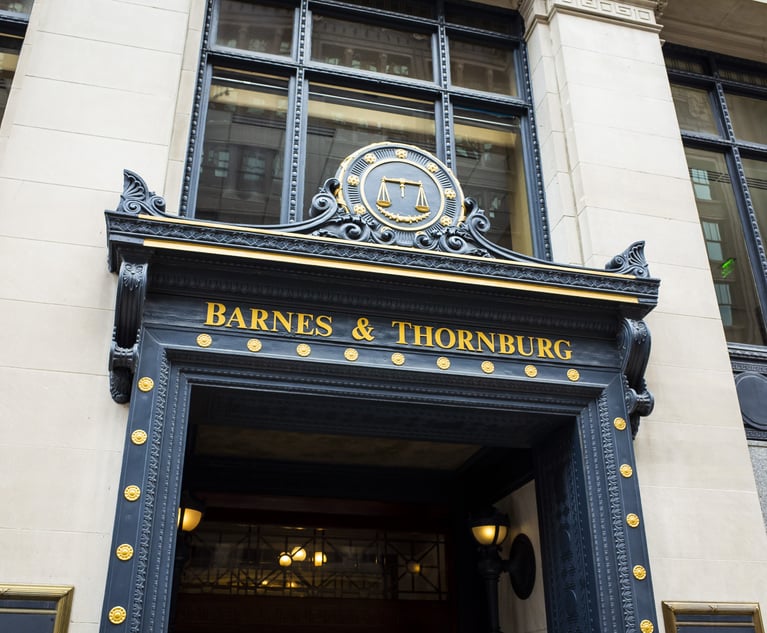
Georgia Justices Urged to Revive Malpractice Suit Against Retired Barnes & Thornburg Atty
4 minute read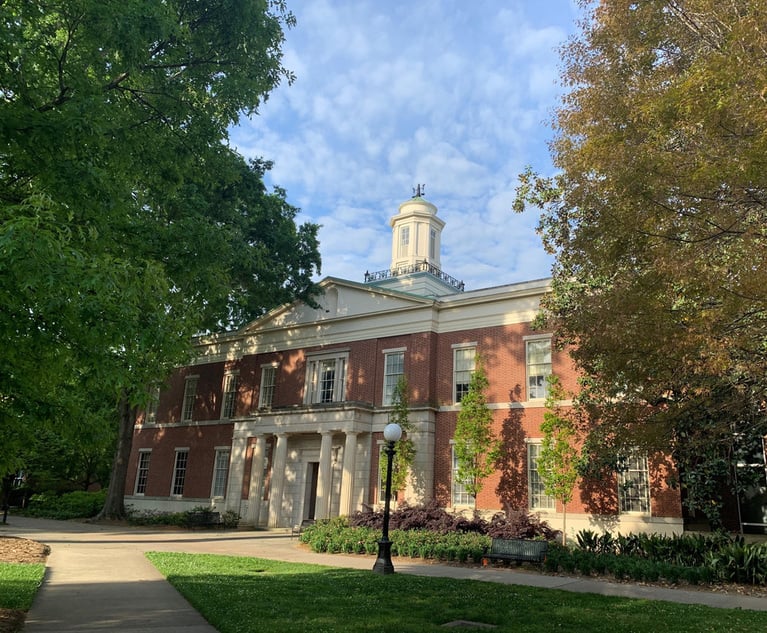
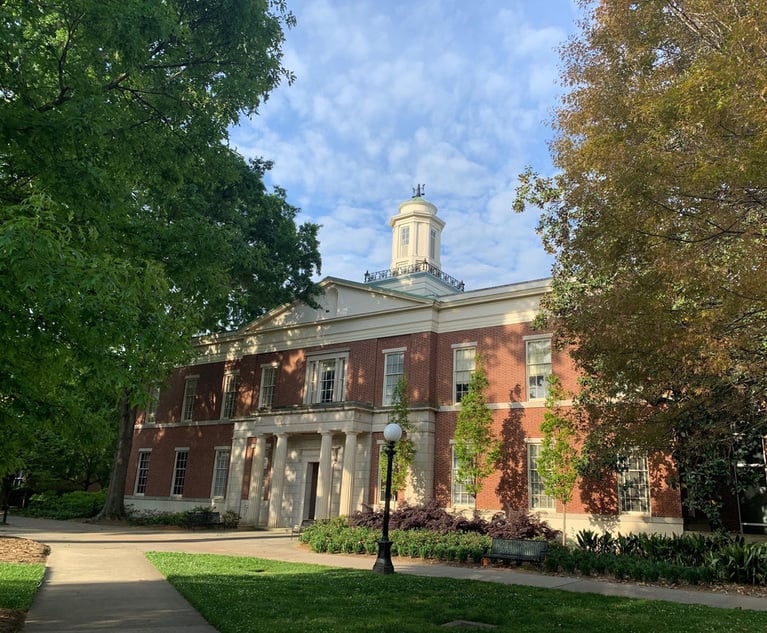
28 Firms Supporting Retired Barnes & Thornburg Litigator in Georgia Supreme Court Malpractice Case
7 minute readTrending Stories
Who Got The Work
J. Brugh Lower of Gibbons has entered an appearance for industrial equipment supplier Devco Corporation in a pending trademark infringement lawsuit. The suit, accusing the defendant of selling knock-off Graco products, was filed Dec. 18 in New Jersey District Court by Rivkin Radler on behalf of Graco Inc. and Graco Minnesota. The case, assigned to U.S. District Judge Zahid N. Quraishi, is 3:24-cv-11294, Graco Inc. et al v. Devco Corporation.
Who Got The Work
Rebecca Maller-Stein and Kent A. Yalowitz of Arnold & Porter Kaye Scholer have entered their appearances for Hanaco Venture Capital and its executives, Lior Prosor and David Frankel, in a pending securities lawsuit. The action, filed on Dec. 24 in New York Southern District Court by Zell, Aron & Co. on behalf of Goldeneye Advisors, accuses the defendants of negligently and fraudulently managing the plaintiff's $1 million investment. The case, assigned to U.S. District Judge Vernon S. Broderick, is 1:24-cv-09918, Goldeneye Advisors, LLC v. Hanaco Venture Capital, Ltd. et al.
Who Got The Work
Attorneys from A&O Shearman has stepped in as defense counsel for Toronto-Dominion Bank and other defendants in a pending securities class action. The suit, filed Dec. 11 in New York Southern District Court by Bleichmar Fonti & Auld, accuses the defendants of concealing the bank's 'pervasive' deficiencies in regards to its compliance with the Bank Secrecy Act and the quality of its anti-money laundering controls. The case, assigned to U.S. District Judge Arun Subramanian, is 1:24-cv-09445, Gonzalez v. The Toronto-Dominion Bank et al.
Who Got The Work
Crown Castle International, a Pennsylvania company providing shared communications infrastructure, has turned to Luke D. Wolf of Gordon Rees Scully Mansukhani to fend off a pending breach-of-contract lawsuit. The court action, filed Nov. 25 in Michigan Eastern District Court by Hooper Hathaway PC on behalf of The Town Residences LLC, accuses Crown Castle of failing to transfer approximately $30,000 in utility payments from T-Mobile in breach of a roof-top lease and assignment agreement. The case, assigned to U.S. District Judge Susan K. Declercq, is 2:24-cv-13131, The Town Residences LLC v. T-Mobile US, Inc. et al.
Who Got The Work
Wilfred P. Coronato and Daniel M. Schwartz of McCarter & English have stepped in as defense counsel to Electrolux Home Products Inc. in a pending product liability lawsuit. The court action, filed Nov. 26 in New York Eastern District Court by Poulos Lopiccolo PC and Nagel Rice LLP on behalf of David Stern, alleges that the defendant's refrigerators’ drawers and shelving repeatedly break and fall apart within months after purchase. The case, assigned to U.S. District Judge Joan M. Azrack, is 2:24-cv-08204, Stern v. Electrolux Home Products, Inc.
Featured Firms
Law Offices of Gary Martin Hays & Associates, P.C.
(470) 294-1674
Law Offices of Mark E. Salomone
(857) 444-6468
Smith & Hassler
(713) 739-1250






